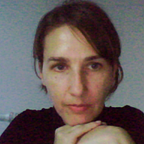Do NOT Start Your Writing Career by Building a Website
Your freelance career is a startup, treat it as such
As a rule, the advice prospective freelance writers find online will emphasize the need to have one’s own website as an absolute must for the successful start of a freelance writing career. Some of these self-proclaimed experts will then also add that you need to treat writing like a business.
While I couldn’t agree more with the latter, I do have a major problem with the former and could even say that this might be the worst possible advice.
Every serious startup founder knows that there are a couple of things that need to be done before even considering building a website. As a prospective writer who is about to launch his or her business, you cannot afford to lose time and money, so first things first.
To be successful, you will have to establish yourself on the market just like any other business. In order to do that, you have to know your market well, you have to know your competition well, and you have to know where is your niche. When you have that information, you can objectively estimate your chances for success.
Start by asking ‘do I even stand a chance?’
Understand that people who are selling you courses on how to become a freelance writer and are trying to convince you that if they have made it, you can magically make it too are generating their income off of the giant pool of would-be writers. It’s a great niche for them but it doesn’t tell you anything about your real chances for success and they will never disclose that to you.
There are some writers who will tell the truth because they are not making their living off of prospective writers. One of them is Derek Murphy who took the time to calculate how many of the published books actually make any money. According to him, that would be .000625 %. I hope that this puts things into perspective and makes it clear how competitive and brutal this market actually is.
Contently conducted a study on the state of freelance writing business in 2016 and you better become familiar with those numbers too. Here are just a few— while 35% of full-time freelancers make less than $20,000 per year, only 8% make more than $100,000. As Contently further clarifies, “22% percent of full-time freelancers make below the federal threshold for poverty for individuals.” Considering the fact that a college degree is key to making it, freelance writers are heavily underpaid for their work.
Still interested in becoming a freelance writer?
Test your MVP
A website itself will not get you any paid work and you cannot build a decent website without knowing exactly how to position yourself on the market. Furthermore, your site will be worthless without a portfolio, references, and some following that could serve as social proof. If you don’t have any of the above, you will have a lousy website and that is the last thing you need.
Instead, you need to come up with and test your MVP. For that purpose, free tools and blog platforms are more than enough. So instead of taking a course on how to become a freelance writer and putting up your website, I suggest starting a blog on one of the free platforms and enrolling in a startup course.
Use the blog as MVP to test your ideas and discover the niche that has potential and is a good fit for you. I see Medium as a perfect testing ground. It’s a fantastic platform that can get you a lot of exposure through publications and is also aesthetic, simple to use, and free. Most importantly, its in-built statistics offers you the chance to monitor your results. Work on it daily and build your portfolio diligently.
After a couple of weeks of testing, evaluate your results. Did your stories get a decent number of views? My stories got close to 8,000 views in the last 30 days and I started to use the platform a bit over 2 months ago. The visit-read ratio is about 50% on average, which isn’t bad. I’m not too happy with the recommendations, but I know which posts were successful and I can use this information as a signpost.
I got paid for one of the pieces and I see what I achieved as promising enough to continue. At this stage, you need to keep testing until you find your niche. This is the area you are an expert on and brings you the most visits, reads, recommendations, and followers. You also have to be sure that you can hold the pace. If you are unable to consistently publish your posts, it is unlikely that you will be able to make it in this field.
Only when you are happy with the results, it makes sense to take that next step. You will then have a much clearer idea of what to focus on and how to present yourself. You will know what kind of content works best and will be able to define your niche. You will have a portfolio, samples of your work, statistics, and comments to prove that people are interested in reading your posts. Only then it would be wise to start thinking about building a website.
